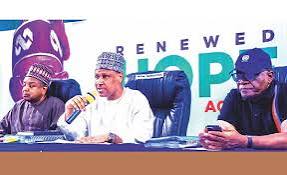The recent signing of the Samoa Agreement by 79 African, Caribbean, and Pacific (ACP) countries, including Nigeria, has ignited a heated debate about the intersection of international cooperation and domestic legislation, particularly regarding LGBTQ+ rights. This controversy highlights the complex nature of global partnerships in an increasingly interconnected world.

The Samoa Agreement, which took effect on January 1, 2024, serves as a new legal framework for relations between the European Union and ACP countries. It covers six priority areas: democracy and human rights, sustainable economic growth, climate change, human and social development, peace and security, and migration.
Contrary to circulating misinformation, the agreement does not mandate signatories to legalize same-sex marriage or adopt pro-LGBTQ+ policies. In fact, many of the 39 countries with anti-LGBTQ+ laws, including several Islamic republics, are among the signatories.
Dr. Aisha Bamidele, an international relations expert at the University of Lagos, explains, “The Samoa Agreement is primarily about economic cooperation and development. It’s not designed to override domestic laws on social issues.”
Key points to consider on the ongoing controversy
1. Diverse Signatories: The agreement includes countries with a wide range of laws regarding LGBTQ+ rights, from those with strict anti-homosexuality laws to those that have legalized same-sex marriage.
2. Compromise Language: The agreement’s final text uses broad human rights language rather than specific LGBTQ+ terminology, a compromise reached after initial objections from some ACP countries.
3. Economic Focus: Government officials, including Nigeria’s Minister of Information, have emphasized that the agreement’s primary purpose is economic development.
4. Sovereignty Concerns: The controversy reflects ongoing tensions between international agreements and national sovereignty, particularly on social issues.
5. Misinformation Challenge: The spread of false information about the agreement’s content highlights the need for clear communication from governments and international bodies.
The situation in Uganda provides an interesting contrast. Despite passing one of the world’s strictest anti-LGBTQ+ laws in April 2024, Uganda is a signatory to the Samoa Agreement. This underscores that signing the agreement does not necessarily conflict with a country’s domestic laws on LGBTQ+ issues.
Human rights activist Olumide Makanjuola comments, “While the Samoa Agreement doesn’t directly address LGBTQ+ rights, it’s part of a broader conversation about human rights and development. It’s crucial that we have accurate information to engage in these important discussions.”
The controversy surrounding the Samoa Agreement reflects broader global debates about balancing international cooperation with national values and laws. As countries navigate these complex issues, clear communication and factual information will be essential to foster understanding and productive dialogue.
Moving forward, the implementation of the Samoa Agreement will likely be closely watched, both for its economic impacts and its potential influence on human rights discussions in signatory countries. While the agreement itself may not mandate changes to LGBTQ+ laws, it could potentially serve as a platform for ongoing dialogue on human rights issues within the context of international development cooperation.
As the world becomes increasingly interconnected, navigating these complex intersections of international agreements, national laws, and social values will continue to be a critical challenge for governments and societies worldwide.



